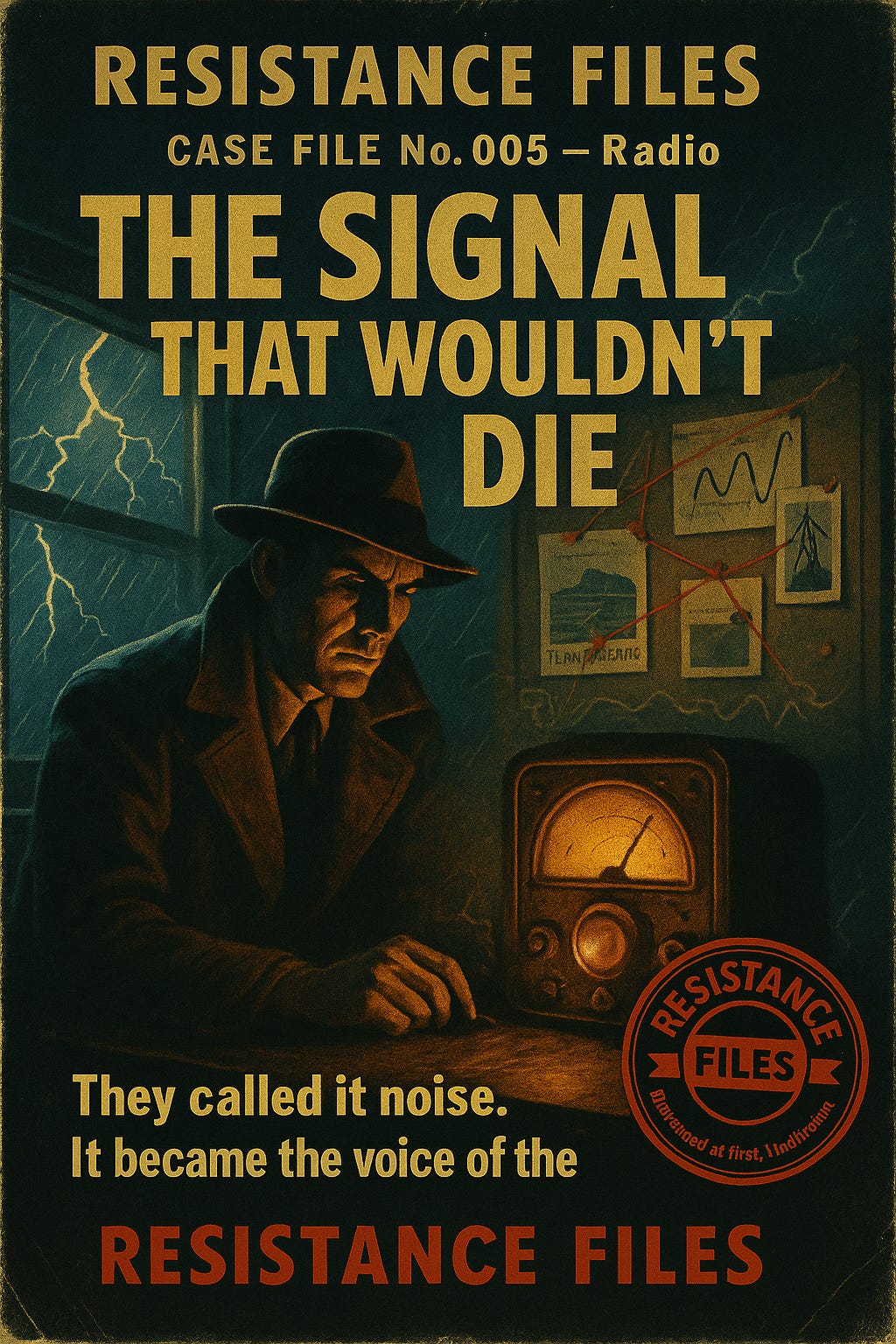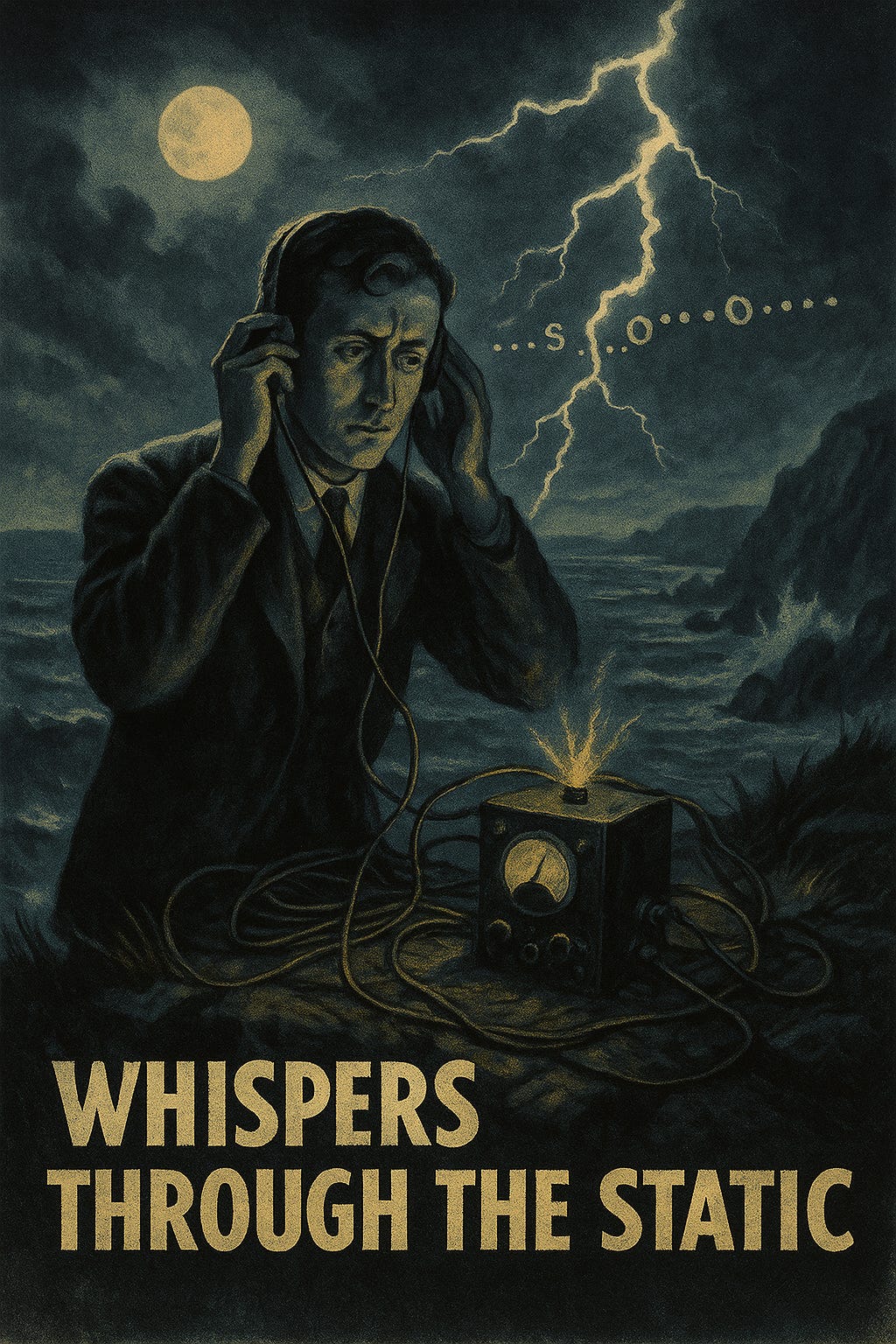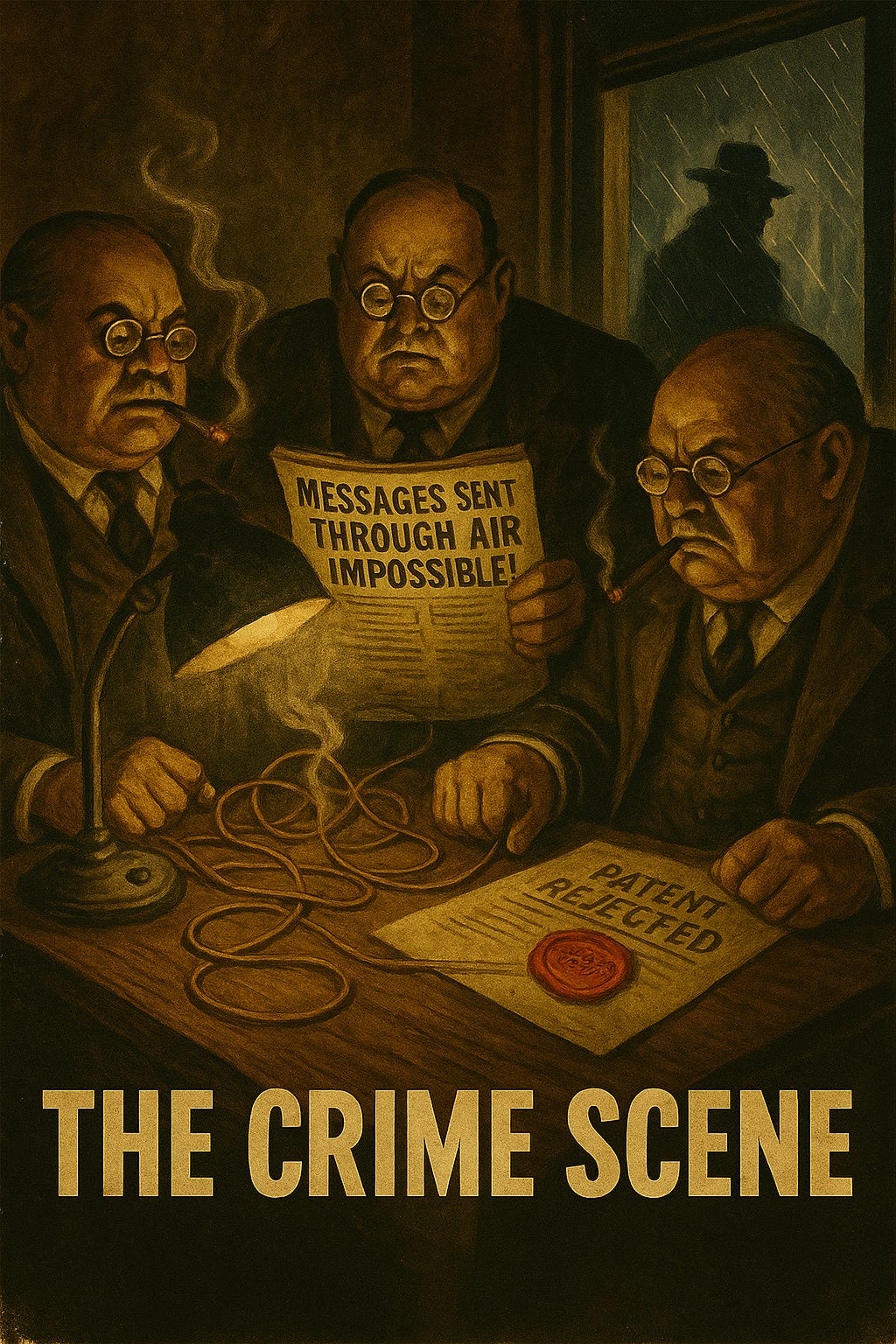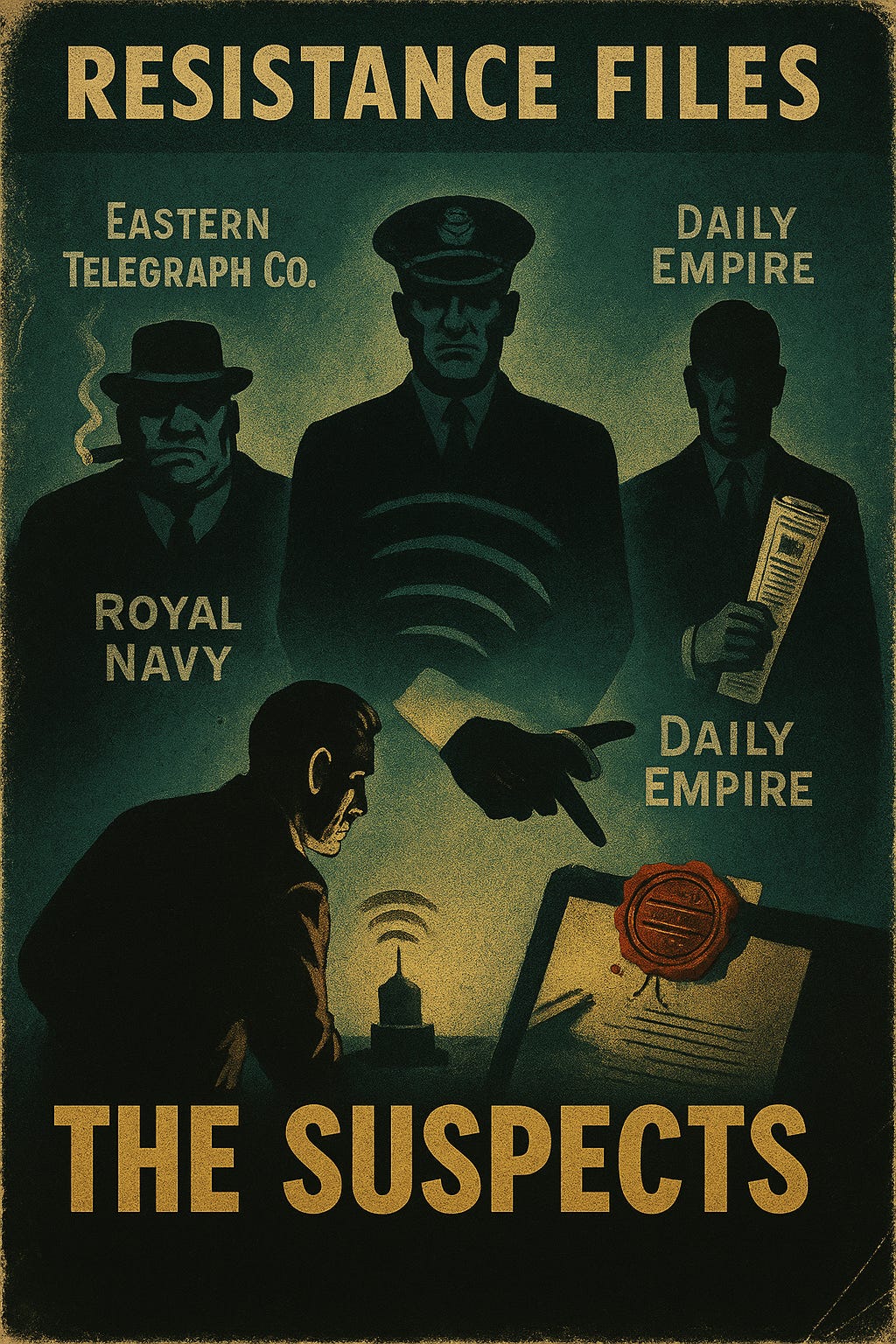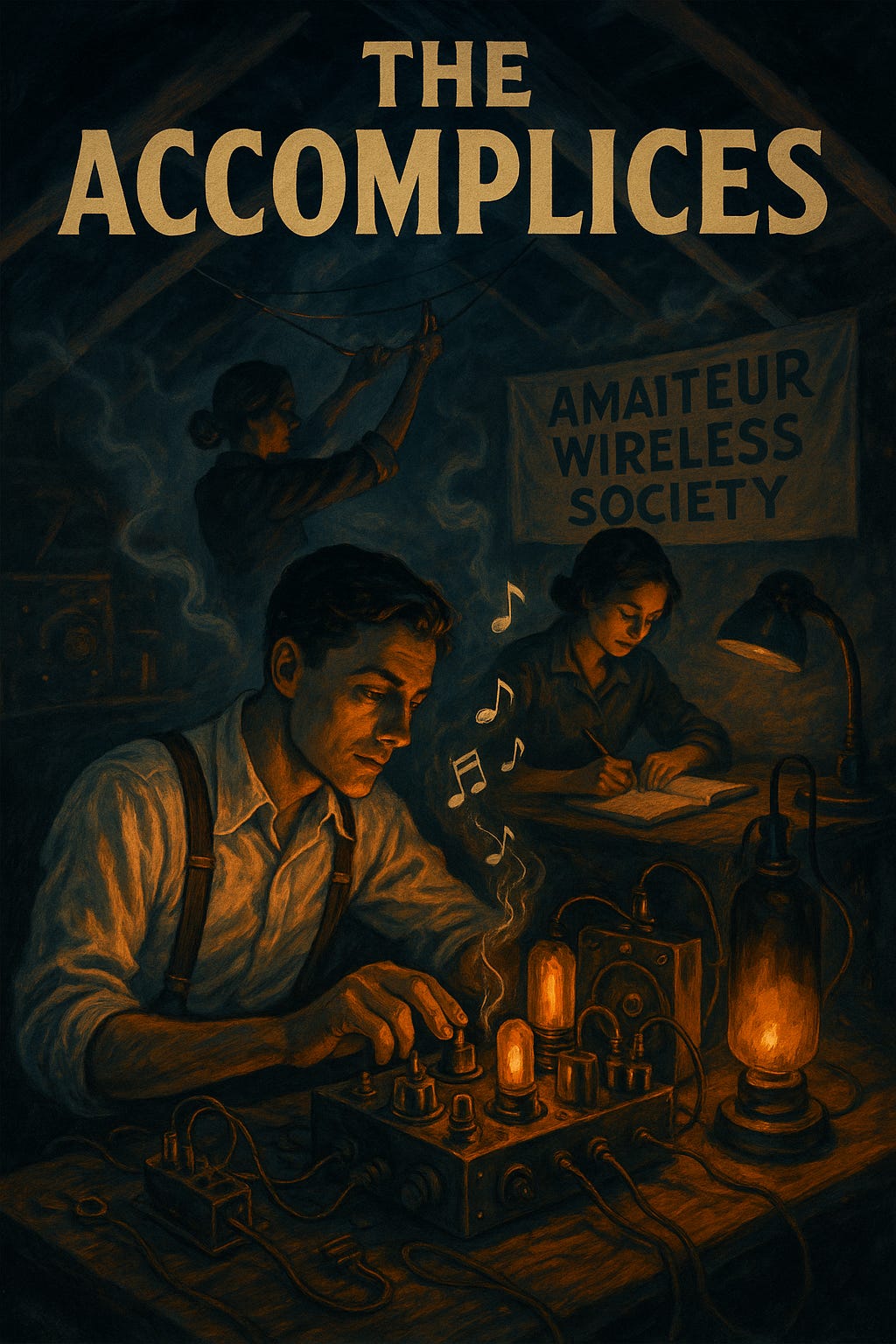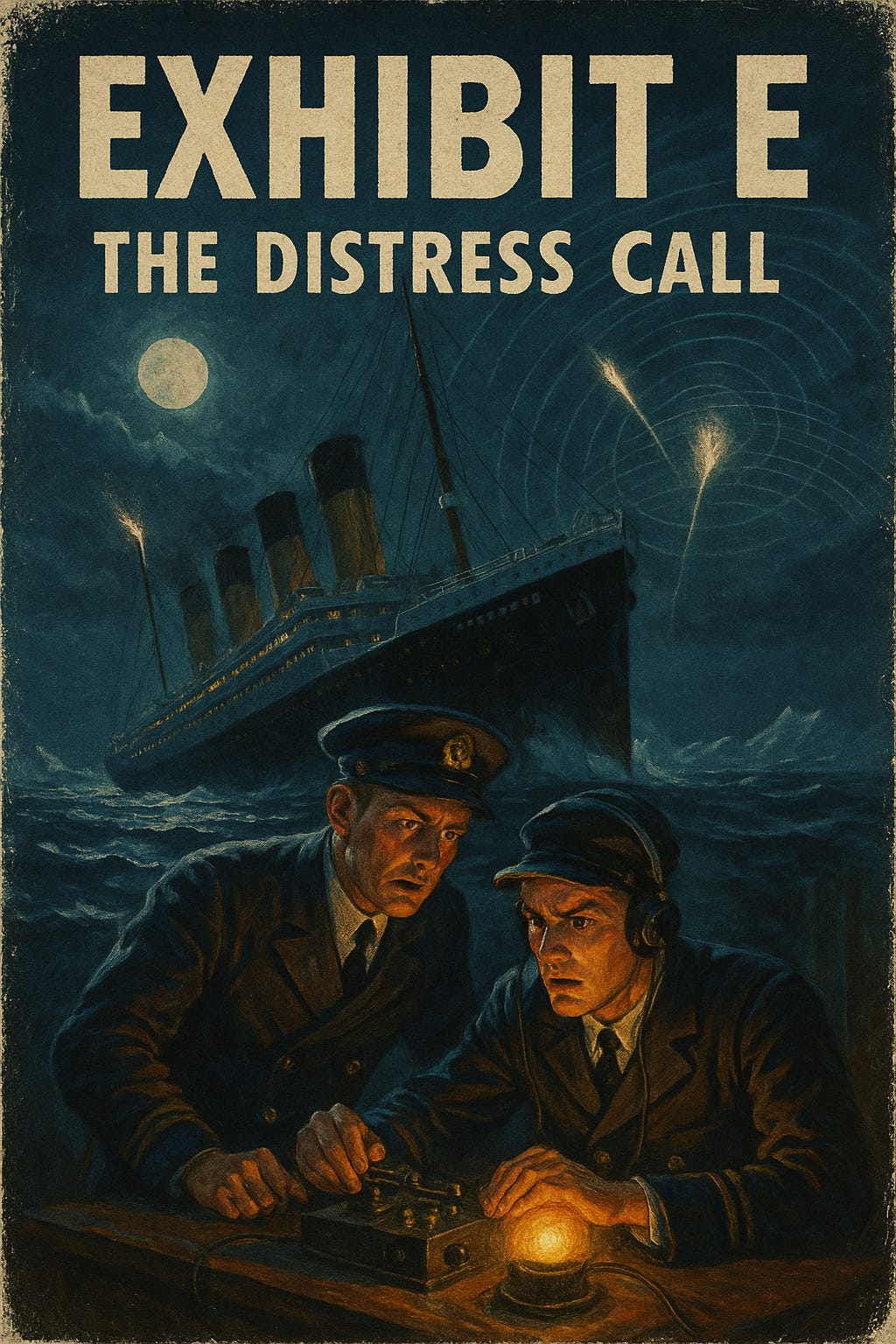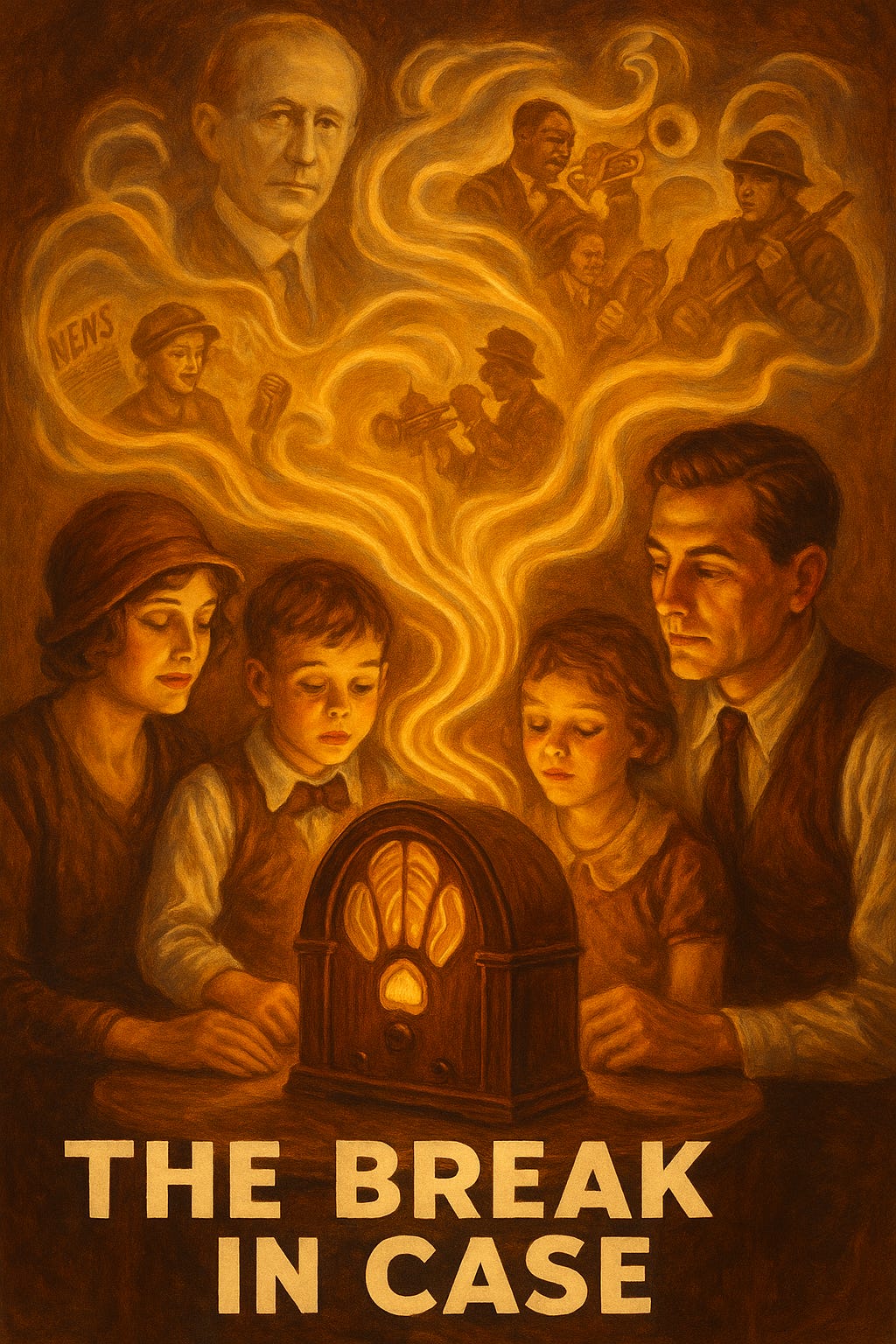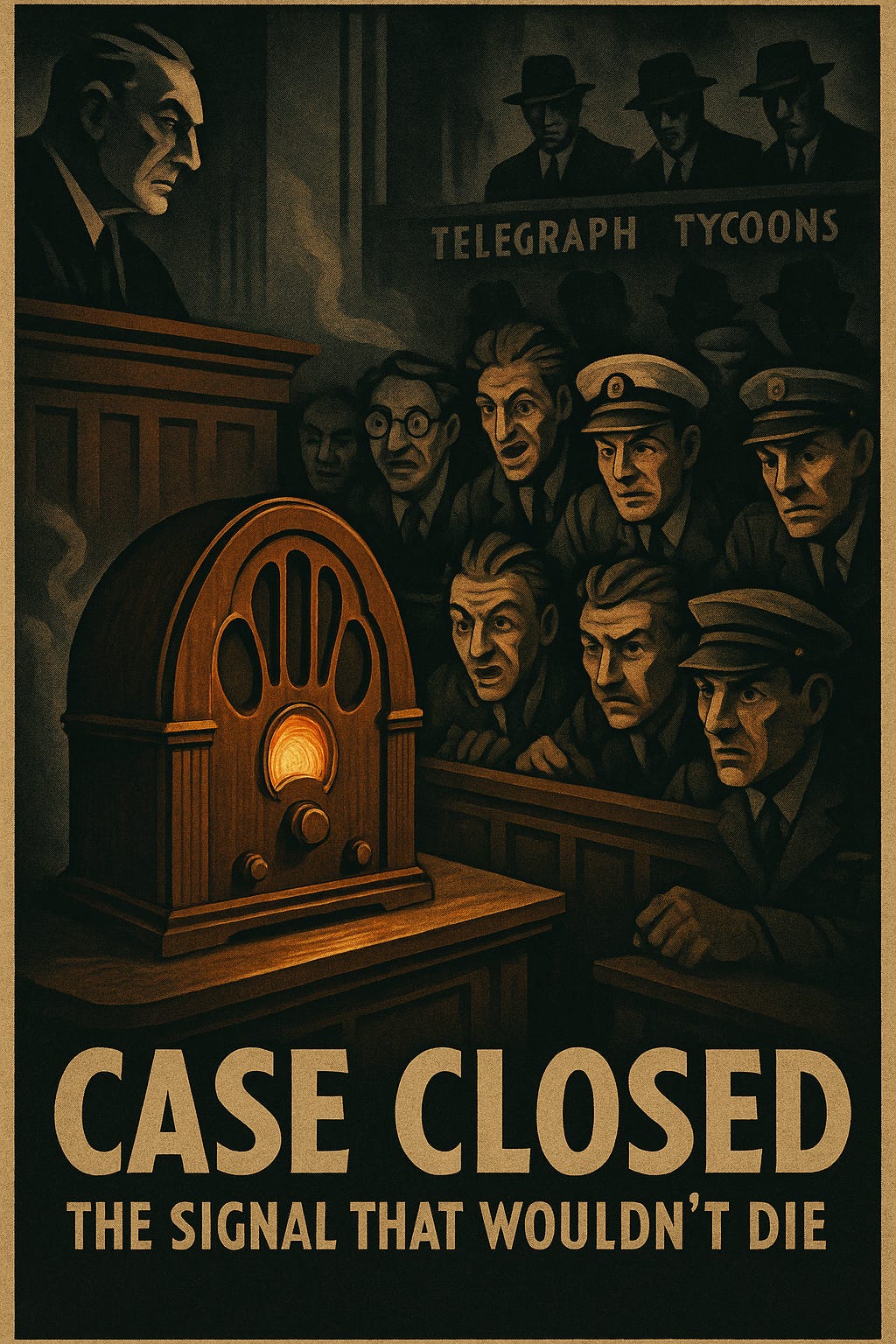Resistance Files: 🎙️ Static on the Line ⚡
Case File #005
Top of the Series: Resistance Files: The Unusual Suspects
Previous: 🎬 Resistance Files: Red Envelope Rendezvous
📻 Resistance Files: The Signal That Wouldn’t Die
Case File No. 005 — Radio
They called it noise. It became the voice of the world.
The Whisper in the Static
The case had gone cold before the century began.
The file sat on the shelf between Electric Dreams and Telegraph Fraud, covered in dust and skepticism. The label was simple: “The Signal Case.”
The reports said a man in Italy had made contact with ghosts.
Another said a recluse in Colorado had heard voices in the lightning.
No proof. Just whispers.
But every resistance starts with a sound someone else refuses to hear.
The night the investigator reopened the file, the storm outside sounded like a confession.
Wind against the window. Rain on the roof.
Static in the air.
He turned the dial on an old shortwave receiver until the silence began to speak.
The Crime Scene
It started at the edge of the century, when science and mysticism still shared the same laboratory.
Electricity was a miracle barely domesticated. Telegraphs had stitched continents together, but the wires were like veins — tangled, fragile, mortal.
And then came the madmen who wanted to cut the cords.
Guglielmo Marconi: a young aristocrat with a mother’s money and a father’s temper.
He built towers that touched the clouds and claimed to hear Morse code echoing across the sea.
The newspapers called him a genius. The skeptics called him delusional.
Then there was Nikola Tesla: the quiet sorcerer. He heard thunder and thought of power. He saw lightning and thought of language.
He dreamed of a world connected by invisible current.
His towers rose in the night like cathedral spires to an unseen god.
Between them stood the wires of the old world, straining to stay relevant.
They said it was impossible to send messages through nothing.
They said sound would die in the air.
But some crimes are committed against certainty.
The Suspects
Every case has its rogues.
Marconi was the showman — the one who turned signal into spectacle. He courted kings, charmed investors, and left a trail of patents like calling cards.
Tesla was the ghost — brilliant, broke, and betrayed. He spoke of global harmony through resonance, but his dreams were too large for ledgers.
Reginald Fessenden, a Canadian voice lost in the static, was the first to make the air sing. Christmas Eve, 1906. A violin played over a transmitter. Operators at sea froze mid-sentence as music filled their headphones.
For the first time, the invisible had melody.
Lee De Forest, the self-proclaimed “Father of Radio,” added amplification and arrogance. He patented what others invented and declared himself prophet of the air. But prophets often end in prison or bankruptcy, and De Forest found both.
They all claimed ownership of the invisible.
None could control it.
Because the air belonged to no one.
And everyone.
The Accomplices
The world didn’t change because of the inventors.
It changed because of the listeners.
Operators at naval posts.
Farmers with homemade antennas strung between chimneys.
Families gathered around mahogany cabinets that glowed like hearths.
The air was full of stories, sermons, songs, and secrets.
A teenager in Kansas built a crystal radio from a tin can and a cat’s whisker. He heard distant stations through the hum of a wheat field.
A housewife in London listened to the news of a war ending half a world away.
In the dark, they became witnesses to the same moment.
Every broadcast was a conspiracy of connection.
Every listener an accomplice to progress.
The real crime wasn’t sending the signal.
It was pretending not to hear it.
Exhibit E: The Broadcast That Changed Everything
They called it a test.
A few kilohertz of frequency, a fragile carrier wave.
But it felt like the world exhaled for the first time.
Ships at sea caught the faint dots and dashes from across the Atlantic.
Then came music. Then came voice.
In a small station, a preacher turned broadcaster read from the Book of Genesis.
“Let there be light,” he said.
And there was.
Not from candles or lamps, but from electrons and belief.
Soon, the invisible became an empire.
Governments scrambled for control.
Corporations filed patents faster than signals traveled.
The British built the BBC to civilize the chaos.
America built networks to monetize it.
Every empire begins with discovery.
Every discovery begins with defiance.
Exhibit E: What Broke the Silence? (Poll)
The year was 1897, and the world was deaf to the invisible.
No one believed voices could travel through thin air.
They called it a trick, a parlor stunt, a storm’s illusion.
But somewhere between the lightning and the static, a signal broke through.
So what really turned the impossible into destiny?
👉 What made radio impossible to ignore?
📡 The First SOS — A distress call that proved the airwaves could save lives.
⚡ The Spark Gap Transmitter — The machine that made ghosts talk.
🎙️ The Human Voice on Air — The moment static turned into soul.
💰 Corporate Intrigue — When kings of telegraph tried to bury the signal.
🌍 The War Connection — How the Navy turned whispers into weapons.
The Break in the Case
The sea has always spoken in whispers before it learns to shout. In 1909, the SS Slavonia called out across the Atlantic with the first radio SOS — a fragile string of dots and dashes that crackled like a heartbeat against the storm. A year later, the SS Minnehaha followed, its signal trembling through static as if the ocean itself were learning the language of distress.
Then came the night the world truly listened. April 15, 1912 — the Titanic, wounded by ice and hubris, sent her plea into the dark: “CQD… SOS… Come at once, we have struck an iceberg.” From her radio room, the sparks leapt into the sky like prayers turned electric. The operators worked until the water reached their keys, sending light through the ether while the ship sank beneath them. Ships hundreds of miles away awoke to the rhythm of that code — three short, three long, three short — and for the first time, humanity felt the ocean answer back.
It was more than just a signal between passing ships in the night. It was the first shared heartbeat of a connected world. The air itself had become a lifeline, carrying human urgency faster than any sail or smoke. In that moment, amid salt and silence, we discovered that survival depends not only on courage but on communication — on the will to reach one another, even as we sink.
By the 1930s, the air itself had a pulse.
Jazz in Harlem. Propaganda in Berlin. Baseball in New York.
One signal, a thousand messages.
The world tuned in, unaware of how fragile it all was.
When the bombs fell over Europe, soldiers in trenches listened to the same frequencies they once danced to.
Radio became both weapon and comfort.
A voice in the dark saying, “You are not alone.”
In wartime, truth traveled on static.
Courage spoke through interference.
After peace returned, the stations didn’t fall silent.
They evolved.
Comedy, drama, politics, rock and roll.
Every word another ripple in the airwaves.
Television would steal the spotlight later, but the signal endured.
It hid in car dashboards and transistor pockets, humming quietly like an old friend.
The static had become a heartbeat.
The Verdict
When the investigator closed the case, he didn’t file it under Science or Industry.
He filed it under Faith.
Because faith is what it takes to believe that something you can’t see could still reach you.
Radio didn’t just transmit information.
It transmitted intimacy.
A whisper that crossed oceans.
A melody that refused to die.
A truth that connection is the most human invention of all.
The last note in the file read simply:
“They thought it was noise. It was the sound of civilization waking up.”
The lights in the office flickered. The rain outside slowed.
The receiver on the desk glowed one last time.
Somewhere in the distance, the static whispered again.
And for those still listening —
the signal was never lost.
Epilogue
If you trace the wire far enough back, it doesn’t lead to a switch.
It leads to a spark — the one moment when doubt gave way to wonder.
The Resistance Files are filled with stories like this.
Each one begins the same way:
A scoff.
A failure.
A fool with an idea too loud to ignore.
And each one ends the same way:
Vindicated together.


